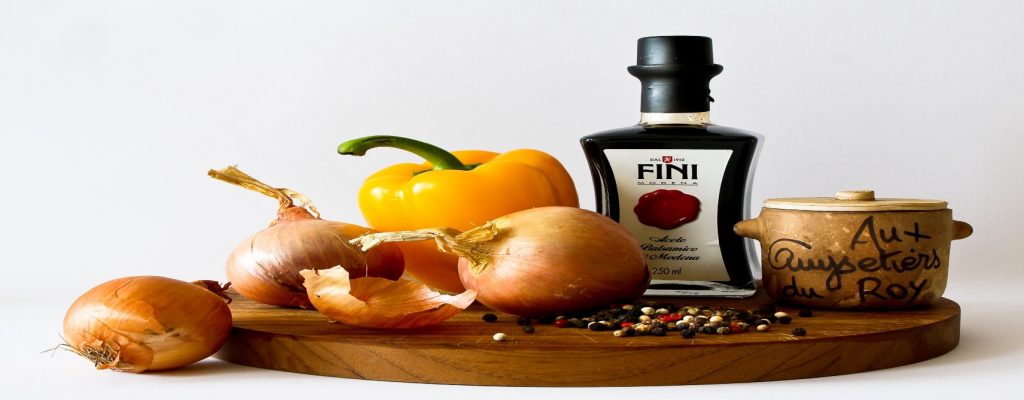- June 9, 2025
- 11:41 am
In the ever-changing world of food, 2025 is evolving up to be one of the most exciting years to date. With technology, sustainability, and health consciousness leading the way, the future of food looks both delicious and smarter. Whether you’re a foodie, a cook, or just someone trying to eat something new, you’ll love these latest food trends. Let us get a flavour of what 2025 has in store!"
Sustainable eating is about choosing food that is healthy for both people and the environment, promoting a balanced diet, and reducing the overall environmental impact of food choices. It involves making decisions about what to eat and how it's grown, processed, and transported, with a focus on minimizing harm to the planet while ensuring food security and healthy eating habits

In the coming days, we can expect to find dishes in restaurants made entirely from ingredients sourced within 50 miles. Also, home cooks are getting creative with "root-to-stem" cooking, using all edible parts of a fruit or vegetable to minimize food waste and maximize flavour and nutritional value.
A plant-based diet primarily focuses on consuming foods derived from plants, including fruits, vegetables, whole grains, legumes, nuts, and seeds. While it often emphasizes plant-based sources, it doesn't necessarily exclude animal products entirely; some individuals may choose to include small amounts of meat, fish, eggs, or dairy.
Here's a more detailed analysis:
Emphasis on Plants:
Plant-based diets prioritize foods from plant sources, such as fruits, vegetables, whole grains, legumes (beans, peas, lentils), nuts, and seeds.
May Include Animal Products:
Unlike vegan diets, which exclude all animal products, plant-based diets can sometimes include small portions of meat, fish, eggs, or dairy.
Plant-based doesn’t mean boring anymore. We can have plant-based pizzas, dairy-free cheeses, and juicy vegan burgers that taste exactly like the real thing.
AI is changing the food industry by improving food safety, increasing production, enriching customer experience, and promoting personalized nutrition. It's being used in various applications, from agriculture to food processing and distribution, and encouraging product development and marketing innovation.

Imagine an app that examines your DNA and other health parameters, then designs a food plan
customized just for you. Personalized nutrition is one of the biggest food trends of 2025. AI-driven kitchen gadgets can also suggest recipes based on what's left inside your fridge, reducing food waste and making weeknight dinners enjoyable.
Restaurants are also participating — using AI to design menus based on customer choices, even Predicting future food trends before they actually happen.
Functional foods are foods that offer health benefits beyond their normal capacity, often due to added bioactive components or modifications in cultivation or processing. These benefits can include promoting good health, preventing chronic diseases, or supporting specific physiological functions.

Examples:
Fortified Foods: Milk enriched with Vitamin A or D, bread added with folic acid.
Probiotic Foods: Yogurt containing added bacterial cultures.
Naturally Rich Foods: Berries, broccoli, soy products.
Enhanced Foods: Fruits and vegetables bred for higher levels of certain nutrients.
Due to the proliferation of social media and a growing interest in global cultures, the modern diner’s plate is becoming more exotic than ever. In 2025, international Flavors are trending very fast.

Continental, Thai, Persian, and indigenous cuisines are gaining well-deserved recognition. Cooks are experimenting with bold spices, new fermentation techniques, and traditional cooking styles that bring authentic global experiences to your plate.
Fusion Cooking is also evolving — Cooks are experimenting deeply to blend techniques, traditions, and flavours across various continents, to create dishes that are unique and novel, and present powerful cultural instances.
Comfort food includes dishes that evoke a sense of nostalgia, familiarity, and emotional satisfaction.These meals are typically associated with home-cooked flavours, traditional recipes, and hearty ingredients that provide a sense of warmth and contentment.

There is a wide range of dishes considered comfort foods across different cultures. Here are some classic examples:
Chicken soup: Known for its soothing properties, chicken soup is often associated with feeling better during sickness.
Mashed potatoes with gravy: A popular side dish in many Western cuisines, offering a creamy and savory experience.
Pizza: Whether homemade or delivered, pizza brings a sense of fun and relaxation.
Cooks are reimagining classic comfort dishes with innovative ingredients and cooking techniques. For For example, a fusion dish that combines the flavours of Indian curry with the Japanese dish of rice.
It’s no longer just about what’s on your plate – it’s also about how it was kept and how it is being delivered. In 2025, eco-friendly packaging hasbecome mandatory in many countries.

The food industry is increasingly focusing on eco-friendly packaging and ethical sourcing to reduce its environmental footprint and appeal to consumers who prioritize sustainability. This includes using materials like recycled paper, biodegradable plastic (PLA), and compostable containers. Many ethical brands also prioritize fair trade practices, organic ingredients, and reducing food waste.
Food companies that don’t align with these values are left behind.
The future of food in 2025 is a blend of technology, tradition, and sustainability. From AI-driven nutrition menus to plant-based gourmet dishes, we’re stepping into a food era that's smarter, healthier, and way more exciting.
Whether you’re a food scientist, a health freak, or just someone who loves good food, 2025 has something thrilling in store for you.
Feature Post
Popular Post
Browse Category
Subscribe News Letter